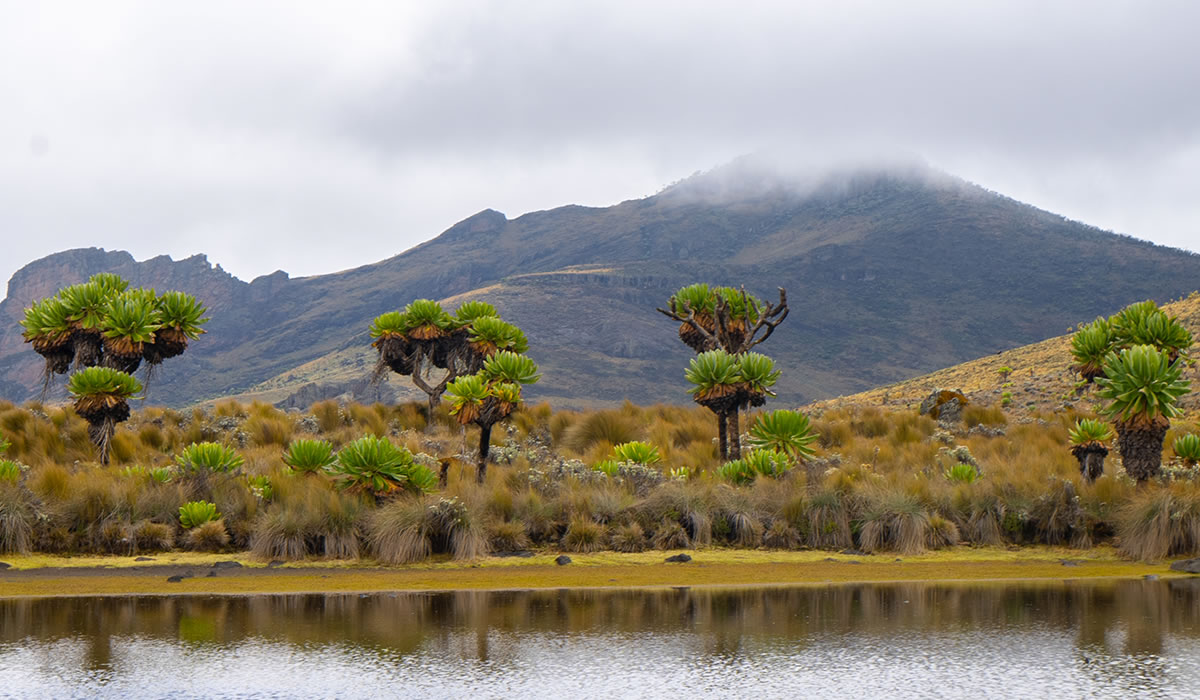Nestled in the heart of East Africa, straddling the border between Uganda and Kenya, Mount Elgon National Park stands as a testament to the diverse beauty and ecological significance of the region. This captivating park is not only a geological marvel but also a haven for biodiversity, offering a unique combination of cultural history, natural beauty, and adventure. This article delves into the various aspects of Mount Elgon National Park, including its geography, wildlife, history, hiking opportunities, and conservation efforts.

Geographic and Geological Features
Mount Elgon, the centerpiece of the park, is an extinct shield volcano that reaches an elevation of 4,321 meters (14,177 feet), making it the eighth-highest mountain in Africa. Unlike many other famous African mountains, such as Mount Kilimanjaro or Mount Kenya, Mount Elgon is not a sharp peak but rather a massive caldera with a series of ridges and valleys, giving it a distinctive rounded shape. This unique formation is the result of volcanic activity that occurred over millions of years.
The mountain is characterized by vast, rugged terrains, including volcanic plugs, caves, and gorges. Its summit is known for its expansive crater, which measures about 8 kilometers (5 miles) in diameter. The summit is surrounded by a diverse range of ecosystems, ranging from montane forests at lower elevations to alpine vegetation at higher altitudes. The park is part of the larger Mount Elgon Massif, which covers an area of about 1,110 square kilometers (429 square miles).
A striking geological feature of Mount Elgon is its unique volcanic geology, including extensive lava flows and the remnants of ancient craters. The mountain has some of the largest caves in East Africa, which were formed by the erosion of volcanic rock. These caves are often used by local communities for various purposes, including as natural shelters.
Flora and Fauna: Biodiversity at Its Best
Mount Elgon National Park is a haven for flora and fauna, offering a rich diversity of plant and animal species, many of which are endemic to the region. The park is home to a range of ecosystems, from tropical rainforests and bamboo forests to alpine meadows. The park is divided into several ecological zones, with each zone hosting different types of vegetation and wildlife.
Flora: The lower slopes of Mount Elgon are covered by dense montane forests. These forests are rich in species of trees, such as the Elgon teak (Milicia excelsa), which is unique to the region. As one ascends the mountain, the forest gives way to bamboo groves, which are critical for both local wildlife and communities. Higher up, the vegetation transitions into heath and moorland, characterized by shrubs, mosses, and alpine plants, including lobelias, groundsel, and various species of grasses.
Fauna: The park is home to a remarkable variety of wildlife, including several endangered species. Among the notable animals found here are elephants, buffaloes, and various primates, including the black-and-white colobus monkey and the blue monkey. Mount Elgon is also a vital refuge for a population of elusive leopards and a variety of antelope species, such as the duiker and the bushbuck.
However, one of the park’s most iconic inhabitants is the Mount Elgon elephant. These elephants are renowned for their unusual behavior of using the caves on the mountain to extract minerals from the earth. The minerals found in the caves help the elephants supplement their diet, particularly salt, which is essential for their health. In addition to elephants, other large mammals like lions, hyenas, and jackals can occasionally be spotted in the park’s lower regions.
The birdlife of Mount Elgon is equally impressive, with over 300 species recorded. Bird enthusiasts will find a plethora of species, including the endangered Turner’s Eremomela, the African green broadbill, and the endangered lammergeyer or bearded vulture. The park’s combination of habitats offers ideal conditions for both migratory and resident bird species.
Cultural Significance
Mount Elgon is not just a natural wonder; it also holds significant cultural importance to the people who live in its vicinity. The mountain is home to several ethnic groups, including the Bagisu and the Sabiny people, who have a long history of living in harmony with the land.
The Bagisu people, in particular, are known for their traditional practice of Imbalu a circumcision ritual that is considered a rite of passage into adulthood. This cultural event is often held at the foot of Mount Elgon, and the mountain is regarded as a sacred place in their traditions. The Sabiny, who live on the eastern side of the mountain in Kenya, also have their own set of traditions and beliefs tied to the mountain, with Mount Elgon playing a central role in their folklore and spiritual practices.
The cultural significance of Mount Elgon extends beyond these practices, as the mountain has historically been a source of livelihood for the local communities. The surrounding forests are used for firewood, medicinal plants, and timber, while the mountain’s slopes provide fertile land for agriculture, including the cultivation of crops such as maize, beans, and potatoes.
Hiking and Adventure
One of the main attractions of Mount Elgon National Park is its hiking and trekking opportunities. The park offers a range of trekking routes suitable for both novice and experienced hikers. The most popular hiking trail is the Sasa River Trail, which takes hikers through the heart of the mountain’s lush forests and bamboo zones, eventually leading to the summit.
For those interested in more challenging hikes, the longer and more difficult Wagagai Peak Trail offers a multi-day trek to the highest point on Mount Elgon. The hike passes through a series of scenic landscapes, including waterfalls, caves, and expansive moorland. Along the way, trekkers will be able to spot wildlife, including elephants and various species of birds, as well as enjoy spectacular views of the surrounding countryside.
The park also offers other activities, including birdwatching, camping, and cave exploration. Visitors can explore the extensive network of caves, some of which are used by the local elephants for salt licking. The caves are an attraction in themselves, as they hold both natural and cultural significance.
Conservation Efforts
Mount Elgon National Park faces several challenges related to conservation, primarily due to human encroachment, poaching, and deforestation. The park has suffered from illegal logging, and the surrounding communities often rely on the forest for resources, putting pressure on the park’s ecosystem. However, significant efforts have been made by both the Ugandan and Kenyan governments, as well as conservation organizations, to protect this vital ecological area.
In Uganda, the park is managed by the Uganda Wildlife Authority (UWA), which has implemented several conservation programs aimed at preserving biodiversity. These include anti-poaching patrols, reforestation efforts, and community outreach programs. In Kenya, the park is managed by the Kenya Wildlife Service (KWS), which has also established various programs aimed at protecting both wildlife and the livelihoods of local communities.
Furthermore, Mount Elgon was designated a UNESCO Biosphere Reserve in 1997, which has helped to raise awareness about the importance of conserving the region’s unique ecosystems. Additionally, several NGOs have partnered with local communities to promote sustainable farming practices and ecotourism, offering an alternative to destructive resource extraction.
Mount Elgon National Park is a remarkable destination that offers an exciting combination of natural beauty, cultural heritage, and adventure. With its unique geology, rich biodiversity, and stunning landscapes, it stands as one of East Africa’s most precious and captivating parks. As efforts to protect and conserve Mount Elgon continue, the park remains a symbol of the delicate balance between human activity and environmental preservation. Whether you are a nature lover, an adventure enthusiast, or someone interested in cultural history, Mount Elgon is a must-visit destination.

